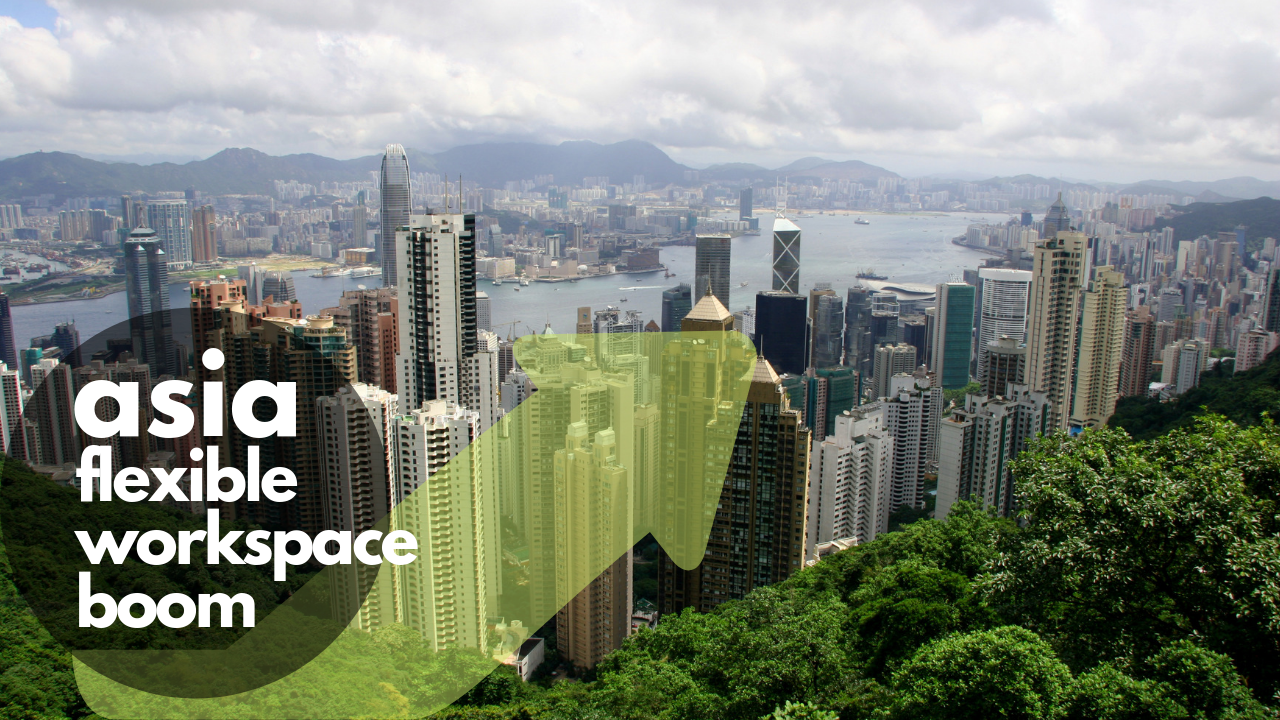- The Asia-Pacific region is booming with flexible workspace activity as operators strive to keep up with demand.
- High-growth cities include Hong Kong, Bangalore, Singapore, and Melbourne, which experienced a 19% increase in new locations alone.
- In addition to regional activity, operators and industry suppliers in Asia-Pacific are closely following US and European flexible workspace trends.
Last year, just a month into 2018 the Asia flexible workspace market was booming with action. This year is no different.
The Asia-Pacific flexible workspace market remains the fastest-growing of the industry, with supply of flexible workspaces growing consistently above 15% over the past 12 months. According to The Instant Group, Hong Kong currently has the largest supply of flexible space in the region with an estimated 380 locations.
Other high-growth cities include Bangalore, Singapore, and Melbourne, which experienced a 19% increase in new locations.
According to JLL, APAC real estate transaction volumes will rise by 5% in 2019. By 2022 flexible workspace platform Qdesq predicts that APAC will be the world’s largest holder of flexible workspaces.
In India alone Qdesq estimates that the flexible workspace market is currently worth $2.2 billion, while in Australia, research suggests the flexible workspace market will soak up around 12% of all commercial office stock by 2030. In Tokyo, flexible workspaces increased to 156,000 square meters in 2018, up 48% from the end of 2017 according to JLL.
Top 2019 Flexible Workspace APAC News
One of the biggest news headlines so far in 2019 is the potential sale of The Executive Centre, which operates over 125 locations across 30 Asian cities. According to reports, HPEF Capital Partners could begin the formal sales process as early as March and it expects the sale to generate offers over $500 million.
Boutique flexible workspace operator, No18, which was purchased by International Workplace Group in 2017 is expected to make its debut in Asia this year with a 20,600 square feet location in Capitol Singapore. Meanwhile, Singapore-based JustCo announced early this year that it plans to double its regional footprint in APAC by the first quarter of 2019. This means JustCo will increase its footprint tenfold since it was founded in 2015.
India’s largest coworking operator, Awfis, also expanded its footprint with its first location in the Chandigarh, Mohali region. According to reports, the coworking brand in India also plans to open locations in Tier 2 cities including Ahmedabad, Jaipur, Kochi, Indore, and Bhubaneshwar. Its goal is to establish 100+ coworking spaces across Mumbai, NCR, Bengaluru, Chennai, Hyderabad, Kolkata, Pune and Zirakpur in the next 12 months.
You might also be interested in: “Why India’s Coworking Market is the One to Watch in 2019”
One of the most important things to note, however, is how operators in Asia-Pacific are closely following US and European flexible workspace trends.
FlySpaces, a Philippines-based flexible workspace marketplace, acquired its Hong Kong-based competitor Quickspaces early this year. Hong Kong-based Garage Society has expanded into India and has plans to open coworking spaces in Thailand, Cambodia, and the Philippines. Meanwhile, India-based IndiQube, which operates 1.5 million square feet of flexible workspaces across Bengaluru, Hyderabad, Chennai, Mumbai, and Pune is moving towards a niche focus by embracing co-living.
IndiQube isn’t the only niche coworking space in the region. Kuala Lumpur-based coworking space, HelloHERA Hub (not part of the US and European Hera Hub franchise) opened the first female-exclusive coworking space in Malaysia.
JustCo recently announced a partnership with Venture Capital, TRIVE Ventures, to launch a startup incubation program. Last year, JustCo was also among the first coworking operators in the region to sign a joint-venture partnership with a property owner and developer. Similarly, property owners and developer groups in APAC are also looking to dive into the coworking industry. Mitsui Fudosan, Tokyu Land Corporation, and NTT Urban Development have launched their own coworking and flexible workspace brands. Mitsubishi, which has operated a flexible workspace brand since 2007 has plans to open a new location this year. Moreover, full stack hospitality firm, OYO, is reportedly in talks to acquire India-based coworking space Innov8.
Flexible workspace operators in the APAC region are also being urged to partner with shopping malls to keep up with rising demand. Coworking in malls offers an opportunity for operators to establish their presence both in urban and suburban markets and it can also provide operators with access to top-tier properties.














